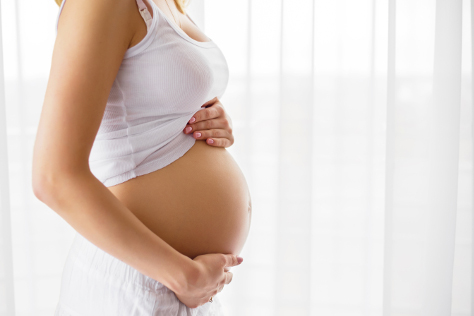A few weeks back we headed to Gran Canaria for what we hoped was a week of sun. A week to get our arms and legs out and gain a bit of natural Vitamin D. Thankfully we got just that.
We went to a small town, Puerto Mogan just half an hours drive from Las Palmas airport. Obviously if you are travelling with kids and just endured a 4 hour + flight this transfer is pretty appealing. Puerto de Mogán is a quaint little resort and fishing village where there are things to do aside from the beach, which was also lovely.
We tend to hire cars when we go within Europe as you can find some really cheap deals for a week and more often than not it is comparable with what you would pay for a transfer or very little more. We picked up the car from the airport and went to our hotel in Puerto Mogan. We stayed in the Apartmentos Cordial Mogan which was just up a pedestrianized road/ walk way from the main town and beach.
Puerto Mogan itself is definitely geared up for all year round tourism. The sea front is lined with cafes, restaurants, bars and some beautiful stores to shop in. To be honest the stores appeared to be rather high end, we don't tend to shop much when away but they looked really tempting full of fragrance and designed clothing.
The cafes and restaurants were all really welcoming in a non annoying way. There was so much to choose from, far too much for a weeks break. i think even if we had stayed for a fortnight there would still be places that we would like to have eaten in that we hadn't managed to squeeze in. If you are travelling with your children then be content in knowing that they welcome them too and make them feel very much welcome.
The harbour itself is beautiful. Absolutely full of all kinds of boats that you can watch from the beach coming and going all day. It was lovely to walk around there during the day when the kids needed a break from the beach, to grab some lunch or for a change of scenery. In the evening it was lovely too and this is where you will find some higher end restaurants which we didn't dare grace with our over tired children!
It is important to remember that most of the beaches in Gran Canaria are volcanic and so a grey colour. This beach is actually man-made and fairly small but that doesn’t stop the hundreds of tourists enjoying it and on a weekend you can see the locals flooding there too.
We pretty much camped out at the beach all week long and didn't go much further than that. We had intentions of using the car to explore a little but it’s far too easy to walk into Puerto Mogán and stay by the sea all day long. I think one day we will back and perhaps go a little further than down to the beach, see what else Gran Canaria has to offer.
Hayley x
Featured Post
5 things everyone should do before travelling when pregnant*
Tuesday, 2 April 2019
A lot of people have started to go on babymoons. Babymoons are a bit like a honeymoon that’s taken before your baby arrives. Change is a wonderful thing, but it's always nice to have a bit of alone time with your partner before your little one makes an appearance. Nowadays, it's safer than ever before to travel while pregnant, but there are a few things you should do before you travel.
1. Get travel insurance
Or, if you already have it, double check it covers you for anything pregnancy-related. Some travel insurance companies have specific requests that you need to do before travelling. Most travel insurance companies, and airline companies, require a doctor's letter to certify you fit to fly. This is more rigidly insisted upon when you are more than 27 weeks pregnant, but it's also just best to get your doctor's okay before you travel. Your GP will know whether or not you're safe to fly, and what precautions you should take, if any.
2. Choose your destination wisely
It's best to choose a destination that is safe, comfortable and has access to good healthcare.
Destinations in Europe are your best option: flights are relatively short, there are no specific vaccinations you need before travelling, and you should have relatively good access to hospitals. Also, what's nicer than just lounging in the sun in Spain or Italy? Not to mention the delicious cuisine!
3. Travelling in the different trimesters
Most women will travel between their 4th and 6th month of pregnancy, as this is often the safest time to travel. Your first trimester (1 to 12 weeks) is when side effects such as morning sickness are most common, and your risk of miscarrying is higher. Between weeks 13 and 27, any sickness will have subsided and you're not likely to go into early labour.
From week 28 onwards (your third trimester), you will have to get a letter from your doctor to say you're fit to fly. By week 36, it's advised you don't fly at all.
4. Find out about any health considerations
While it's always exciting to eat new and interesting foods when you're on holiday, there are certain foods you should not eat while you're pregnant. Some foods are more prone to lead to food poisoning, no matter who eats them, but again, not worth risking while you're expecting.
Patê is to be avoided at all costs, because there is a high chance it might contain listeria, which can affect pregnant women more than anyone else. Cold cured meats are also advised against because they are not cooked, and can contain parasites.
5. Check out the accommodation
There’s a chance you'll find travelling while pregnant more tiring than before you were expecting, so it's important to make sure you know what type of accommodation you'll have. Avoid hotels that have no lift, and definitely don't book into a hostel. Read the reviews for the accommodation online before you book, and look for 'family-friendly' hotels or villas. These are more likely to be quiet and homely, instead of a hotel full of hen and stag parties!
Why don't you see if your hotel comes with a spa? You could indulge in a manicure, pedicure or pregnancy massage while on holiday to pamper yourself.
Travelling while pregnant used to be a no-no, but with careful planning, you can have a great holiday with your bump!
*This post is a collaboration.
1. Get travel insurance
Or, if you already have it, double check it covers you for anything pregnancy-related. Some travel insurance companies have specific requests that you need to do before travelling. Most travel insurance companies, and airline companies, require a doctor's letter to certify you fit to fly. This is more rigidly insisted upon when you are more than 27 weeks pregnant, but it's also just best to get your doctor's okay before you travel. Your GP will know whether or not you're safe to fly, and what precautions you should take, if any.
2. Choose your destination wisely
It's best to choose a destination that is safe, comfortable and has access to good healthcare.
Destinations in Europe are your best option: flights are relatively short, there are no specific vaccinations you need before travelling, and you should have relatively good access to hospitals. Also, what's nicer than just lounging in the sun in Spain or Italy? Not to mention the delicious cuisine!
3. Travelling in the different trimesters
Most women will travel between their 4th and 6th month of pregnancy, as this is often the safest time to travel. Your first trimester (1 to 12 weeks) is when side effects such as morning sickness are most common, and your risk of miscarrying is higher. Between weeks 13 and 27, any sickness will have subsided and you're not likely to go into early labour.
From week 28 onwards (your third trimester), you will have to get a letter from your doctor to say you're fit to fly. By week 36, it's advised you don't fly at all.
4. Find out about any health considerations
While it's always exciting to eat new and interesting foods when you're on holiday, there are certain foods you should not eat while you're pregnant. Some foods are more prone to lead to food poisoning, no matter who eats them, but again, not worth risking while you're expecting.
Patê is to be avoided at all costs, because there is a high chance it might contain listeria, which can affect pregnant women more than anyone else. Cold cured meats are also advised against because they are not cooked, and can contain parasites.
5. Check out the accommodation
There’s a chance you'll find travelling while pregnant more tiring than before you were expecting, so it's important to make sure you know what type of accommodation you'll have. Avoid hotels that have no lift, and definitely don't book into a hostel. Read the reviews for the accommodation online before you book, and look for 'family-friendly' hotels or villas. These are more likely to be quiet and homely, instead of a hotel full of hen and stag parties!
Why don't you see if your hotel comes with a spa? You could indulge in a manicure, pedicure or pregnancy massage while on holiday to pamper yourself.
Travelling while pregnant used to be a no-no, but with careful planning, you can have a great holiday with your bump!
 |
| Image Source: http://www.pregnancyview.com/planning-an-international-babymoon/ |
*This post is a collaboration.
Subscribe to:
Posts (Atom)

























